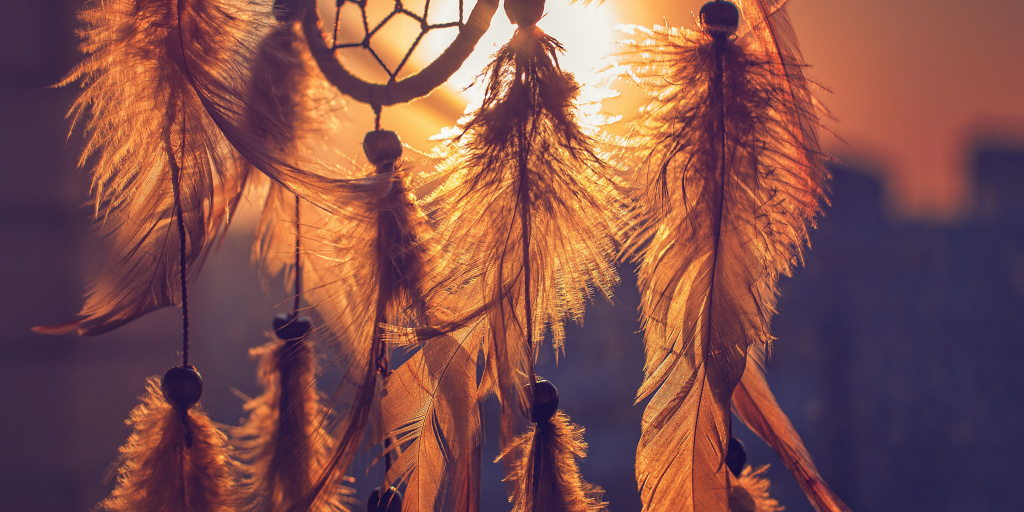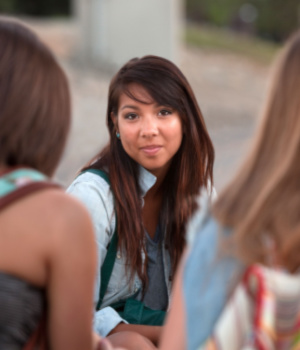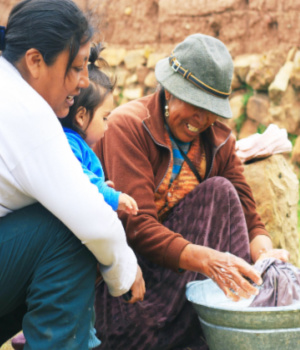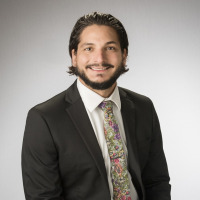Reading Time: 16 minutes

101 Native American Substance Abuse & Mental Health Resources
Substance abuse presents a serious problem for Native Americans in the U.S., thanks in large part to disparities like isolation, poverty, and lack of healthcare resources. This article provides a detailed look at the unique characteristics of the Native American community, including the overall impact of substance abuse and mental health. You’ll also find a wealth of supportive mental health resources and addiction treatment options available to Native Americans.
Addiction and Mental Health in the Native American Community

Addiction is a chronic health disorder impacting one in 14 Americans, according to the Centers for Disease Control and Prevention (CDC). While addiction and alcoholism can affect people from any walk of life, there are some populations at a greater risk, such as Native Americans.
American Indian and Alaska Natives (Native Americans) face greater health disparities, including chronic stress, diabetes, addiction, accidents, mental health and suicide.
Perhaps most significant in Native American alcohol abuse statistics, is that this population is much more likely to need treatment for substance use, and they are five times more likely than white people to die of alcohol-related causes.
Risk Factors for Substance Abuse in Native American Communities
According to the latest census data, there are 2.9 million people in the United States who identify as Native American, which accounts for just under 10 percent of the U.S. population. However, rates of Native American drug and alcohol abuse are disproportionately high.
The underlying causes leading to health disparities among Native Americans are complex. However, significant research of this population points to several unique risk factors including:
- Historical trauma: European colonization caused significant emotional and psychological injury (trauma) on generations of Native American tribes and their descendants. As Native Americans were forcefully colonized, they were exposed to extreme violence, trauma, and loss. They lost their cultural identity, their children were forcefully removed from their homes, and they lost their home and rights to their land.
- Current trauma: Traumatic histories often led to the loss of traditional native practices around families and relationships, causing poor health in parents and children, low self-esteem, depression, unresolved grief, substance abuse, post-traumatic stress disorder, domestic violence, and high rates of suicide.
- Environment: Living on a reservation may increase the risk of higher rates of drug and alcohol use among teens.
- Low levels of education: Native Americans have less educational attainment compared to white Americans, which is linked to a greater risk of substance abuse, especially in rural areas.
Native American Addiction and Mental Health Statistics
Addiction and mental illness are some of the major long-term causes for concern for Native Americans, with rates often exceeding all other racial and ethnic demographics in the United States. Despite accounting for less than 10 percent of the US population, Native Americans have a lower life expectancy than other racial categories in America.
In the next few sections, we provide Native American mental health statistics, facts about Native American drug use history, and data showing the prevalence of alcoholism among Native Americans.
Various national agencies, including the U.S. Department of Health and Human Services and the Indian Health Service, have been collecting and analyzing information about Native American substance use, alcoholism, and addiction for many years. We’ve summarized this information into sections below.
Native American Alcohol Abuse Statistics
 Alcoholism is recognized as the number one health problem for Native Americans. While rates of alcohol and drug use vary across tribes, members of Southwest reservations showed higher risks of alcohol dependence.
Alcoholism is recognized as the number one health problem for Native Americans. While rates of alcohol and drug use vary across tribes, members of Southwest reservations showed higher risks of alcohol dependence.
Overall, some key alcohol statistics show that Native Americans:
- Use alcohol at higher rates
- 1 percent have an alcohol use disorder
- Are five times more likely to die of alcohol-related causes
- Have the highest rates of neonatal abstinence syndrome, with rates as high as 1.5-2.5 per 1,000 births
- 50 of 100,000 Native American deaths are alcohol-induced
Native American Substance Abuse Statistics
Like alcohol use, substance use, experimentation, and rates of substance abuse and addiction, are higher compared to other racial and ethnic groups in the United States. While drug use varies among tribes, members of Northern Plain tribes are at a higher risk of alcohol and drug abuse.
Native American Mental Health Statistics
While Native Americans make up approximately 10 percent of the US population, they are disproportionately impacted by mental illness compared to other racial and ethnic groups. As we mentioned above, Native Americans face unique risk factors — such as multigenerational trauma, poverty, and higher levels of substance abuse and addiction — which are thought to also cause significant mental health concerns.
This section contains helpful resources, such as information about Native American drug and alcohol treatment centers, how to receive eligible services, support groups, free mental health resources, suicide prevention information, and lots of free resources.
Native American Crisis Chat Lines & Help Lines
These crisis resources are a list of helplines that provide advice, support, and resources for Native Americans in crisis. Many of these resources are available to discuss mental health, addiction, and other types of crises,
- Strong Hearts Native Helpline: 24-hour support provides confidential and anonymous advice for Native Americans experiencing domestic violence and dating violence. Call 844-762-8483
- Lifeline Chat: 24-hour secure and confidential emotional support for those who are unable to call or prefer to communicate via chat/text.
- Crisis Text Line: 24/7 support. Text “HOME” to 741741 – or message on WhatsApp
- National Suicide Prevention Lifeline: 24-hour support with a trained crisis counselor. Call 1-800-273-8255
- Deaf and hard of hearing support:
- Suicide Prevention Lifeline: 24-hour support. Text “HEARME” to 839863
- Deaf LEAD: 24-hour crisis line: VP – 321-800-3323 // or text “HAND” to 839863
- Disaster and Distress Helpline: 24-hour national helpline providing immediate crisis counseling related to any natural or human-caused disaster 1-800-846-8517
- Crisis Line for Racial Equity Support: BIPOC support available for BIPOC people feeling the impacts of racism, violence, and immigration struggles. Monday to Friday from 10am -7pm PST. Call 503-575-3764
- Teen Line: Highly trained teen listeners to provide support, resources, and hope to any teen struggling nationwide, during 6pm-10pm PST, and 6pm-10pm for the text line. Call 1-800-852-8336 // or text TEEN to 839863.
- SAMHSA – National helpline: 24-hr treatment referral and information service for individuals and families facing mental health and/or substance use disorders. Call 1-800-662-4357 // visit the online treatment locator //or text your zip code to 435748 to find help near you.
- Didi Hirsch’s Suicide Prevention Center: Multilingual 24/7 crisis line: 1-800-273-8255
- The Trevor Project: 24-hour support by trained counselors for LGBTQ Youth. Call 1-866-488-7386 // Text “START” to 678-678
- Military/Veterans Crisis Line: 1-800-273-8255 // Text line: 838255 //Confidential chat at MilitaryCrisisLine.net
Native American Mental Health Support Organizations
The following organizations, nonprofits, and foundations provide mental health resources, education, research, technical assistance, health information, training, and support for Native Americans.
- Indian Health Service: A federal program to provide health services to American Indians and Alaska Natives. The service seeks to improvise the physical, mental, social, and spiritual health of Native Americans. They provide information for patients, providers, and community health.
- One Sky Center: A national resource center about American Indian and Alaska Natives, containing information on health, education, and research. They provide technical assistance to Native Americans, such as consultation, service planning, and program development; referrals to behavioral health consultants, educators and trainers; and training to facilitate effective and culturally relevant substance abuse prevention and treatment. Helpful links include:
- Native American Aid: This organization has a range of social programs and resources, and information about the history and culture of key events in the Northern Plains Native Americans. Helpful links:
- Emergency care: Provides supplies to Native Americans impacted by all kinds of disasters
- Elder care: Provides elders with toiletry items, underclothes, blankets, and other necessities
- Nutrition care: Delivers fruits and vegetables to struggling Native American families.
- Centers for American Indian & Alaska Native Health: Has been established since 1986, and is the largest, most comprehensive program to promote health and well-being of Native Americans. They pursue research, provide training, education, and technical assistance to provide culturally competent care for Native Americans. Check out their partnership projects, training, news and research, and events pages.
- National Native Children’s Trauma Center: Provides training on trauma, prevention, and healing in Tribal communities for schools, families, youth, child welfare and juvenile justice, and other youth-serving organizations.
- WeRNative: a comprehensive resource for Native American youth that promotes holistic health and community well-being. They provide information on culture, mental health relationships and hold an advice column.
- White Bison: A grassroots nonprofit organization that facilitates the Wellbriety Movement, providing mutual-aid support meetings, addiction prevention programs, Wellbriety Certified Treatment Centers, and training, and learning resources for the Native American/Alaskan Native community nationwide.
- GLSEN: A network of educators and students that advocate to provide safe, supportive, LGBTQ-inclusive K12 education. Check out their resources section for educators, students, and GSAs.
- Center for Native American Youth, Aspen Institute: A nonprofit organization providing nationwide education and advocacy organization that works with youth to improve health, safety, and overall well-being. Check out their resource exchange, and events page.
- NPAIHB Indian Leadership for Indian Health: This organization works toward improving Indian health, including legislation, health promotion, disease prevention, and research. Check out their resource library which contains information about health issues affecting Native Americans; LGBTQ2S Youth resources; and toolkits for Native transgender and Two Spirit youth, their families, and their healthcare providers.
- Native Hope: An organization that seeks to address the injustice done to Native Americans, through storytelling and community support networks to bring healing and hope.
- Johns Hopkins Center for American Indian Health: This organization works with Indigenous Tribal organizations to promote mental healthcare, prevent suicide, support substance abuse, and improve prevention efforts.
- White Bison: A grassroots nonprofit organization that facilitates the Wellbriety Movement, providing mutual-aid support meetings, addiction prevention programs, Wellbriety Certified Treatment Centers, and training, and learning resources for the Native American/Alaskan Native community nationwide.
- Nalgona Positivity Pride: An eating disorder advocacy organization that provides resources, including videos, interviews, and stories of recovery.
- Well for Culture: A movement that promotes holistic health for Indigenous people using their Seven Circles of Wellness. They provide recipes, blog articles, movement tutorials, and further resources.
Native American Substance Abuse and Drug and Alcohol Treatment Resources
- One Sky Center: An advocacy group that is working to improve access to substance abuse treatment and resources for Indigenous peoples.
- Indian Health Service – Substance Abuse: This page provides information on how to find substance abuse treatment in Tribal, urban, and Indian Health Programs.
- SAMHSA Tribal Affairs: This is a government organization that recognizes the mental health challenges and disparities Native Americans: this page provides information on technical assistance, Tribal funding opportunities, consultation, and a the guide, Treatment Improvement Protocol 61: Behavioral Health Services for American Indians and Alaska Natives.
- White Bison: A nonprofit group that works to promote sobriety, Wellbriety, and overall recovery to American Indians and Alaska Natives.
- SAMHSA: This organization provides a range of services, including an online treatment locator – can help to find appropriate addiction care nationwide; the office of Tribal Affairs; Tribal Training and Technical Assistance Center; National American Indian Alaska Native Addiction and Mental Health Technology Transfer Center, and numerous opportunities for funding and grants.
Native American Support Groups
- Wellbriety, hosted by White Bison is a mutual-aid support meeting that provides culturally based healing to Indigenous People across America and Canada. You can attend meetings in-person and online.
- Recovery Dharma (BIPOC Only group): A Buddhist-inspired recovery support group that hosts meetings specifically for BIPOC, and BIPOC LGBTQ2S folks.
- You Are Not Alone Network: Not a support group exactly, but an online community for people struggling with and recovering from mental health issues.
Resources for Native American Youth and Students
There are a range of resources and organizations dedicated to providing Native American Youth with resources to support their mental and physical well-being, including:
- National Native Children’s Trauma Center: provides training on trauma, prevention, and healing in Tribal communities for schools, families, youth, child welfare and juvenile justice, and other youth-serving organizations.
- Native Child Advocacy Resource Center: part of the National Native Children’s Trauma Center, NCARC collaborates with tribal communities to support the development of culturally focused and trauma-informed programming to support Native American children, families, communities, and tribes.
- Center for Native American Youth: this organization works to improve the health, safety, and overall well-being of Native Youth. Their resources exchange page contains resources that youth, communities, and partners have found helpful.
- GLSEN: a network of educators and students that advocate to provide safe, supportive, LGBTQ-inclusive K12 education. Check out their resources section for students, which contains information on youth programs, youth mentorship program, gender and sexuality alliances, and their publication, Erasure and Resilience: The Experiences of LGBTQ Students of Color.
- WeRNative: a comprehensive resource for Native American youth that promotes holistic health and community well-being. They provide information on culture and identity; mental health issues and building mental health resilience; relationship resources about dating and sexual health; and an advice column, Ask Auntie.
- Indigenous Story Studios: A non-profit that publishes comics and graphic novels dedicated to telling the stories of Indigenous peoples.
- Indian Country Child Trauma Center: A group that works to improve children’s healthcare among Native American communities.
Native American Scholarships and Financial Aid
- Native American Aid provides financial aid, in the form of resources, to families in poverty, the elderly, and those in crisis.
- One Sky Center offers a list of scholarships for mental health and addiction treatment.
- American Indian College Fund provides resources for Native American youth to seek higher education.
Native American Parent and Family Mental Health Resources
In addition to the above resources, Circles of Care is a SAMHSA’s initiative led by the Tribal Training and Technical Assistance Center that supports Native American families struggling with mental illness.
Native American Veteran Resources
There are several Native American Veteran resources available for veterans and their families, including:
- Native American Veterans Association (NAVA): honors Native Americans who have served active duty and their families. They provide readjustment assistance, family support, mental health and wellness resources, and career and educational training, and job opportunities. You can also find programs like the Home Preservation Program to support low income homeowners with repairs; the Veterans History Project, which collects personal accounts of American war veterans; Traditional Healing Ceremonies, Annual Veterans Appreciation and Cultural Gathering, Information Talking Circles, NAVA Annual Summit.
- The Department of Veterans Affairs has an Office of Tribal Government Relations, which contains information about the Native American Direct Loan Program, participating tribes, and Home Loans for Veterans. Essentially, if you are a Veteran, and either you or your spouse is Native American, you can get a reduced interest rate loan to buy, build, or improve your home on federal trust land.
Native American LGBTQ2S Resources
The following resources are specifically designed for Native Americans who hold a LGBTQ2S identity.
- NPAIHB Indian Leadership for Indian Health: A directory of Two Spirit or LGBTQ-affirming providers and communities, as well as a section on rights, print materials, films, and support.
- National Queer and Trans Therapists of Color Network: A directory of QTPOC therapists in the United States.
- LGBTQ Psychotherapists of Color: A grassroots, volunteer organization that provides support, networking, and community building opportunities for QTPOC therapists.
- YMSM + LGBT Center of Excellence: This organization is focused on racial and ethnic minority young men who have sex with men and other lesbian, gay, bisexual, and transgender populations. They work to help provide mental health and addiction care that is culturally responsive, and evidence based.
- GLBT National Resource Database: Contains a directory of national organizations, support resources, community centers, and youth groups.
Additional Native American Mental Health Resources
Here you will find a range of Native American podcasts, videos, links to inspiring social media influencers, articles, and webinars on mental health and intersecting issues.
Native American Podcasts
- What’s Culture Got to Do with It?: For Native American children and families, addressing how to craft culturally responsive child welfare and child protection services.
- Native American Ellen Blackcloud: A podcast about the traumatic experiences of growing up as a Native American and how getting sober became a catalyst for healing.
- All My Relations: A podcast led by two Indigenous hosts who discuss their relationships with the land, and each other, and the intersections of mental health.
- Indian Relay: A Wind River Reservation podcast, about addiction and recovery resources for Wind River Reservation residents.
- Wellness for Culture: Discusses how to live social justice wellness for Indigenous communities.
- Two Spirit Talks: A storytelling podcast that centers and uplifts Two Spirit voices
Native American Social Media Influencers
- Txai Suruí @txaisurui – Indigenous climate activist
- Tukumã Pataxó @tukuma_pataxo – Shares his experiences living in Brazil as a member of the Pataxó tribe
- Autumn Peltier @peltier – A global water activist and member of the Wikwemikong First Nations community
- Sarain Fox @sarainfox – A Canadian storyteller who hosts RISE on Viceland. She is passionate about empowering Indigenous communities and amplifying their voices.
- Quannah Chasinghorse @rose – An indigenous model that honors her heritage
- James Jones @notoriouscree – Brings Indigenous dancing to the masses
- Samela Awiá @sam_sateremawe – An activist part of Fridays for Future Brasil
Native American Videos
- RISE, Viceland – a show that travels to Indigenous communities across the Americas, to meet people protecting their homeland and rising up against colonization.
- Capacity Building Center for Tribes is a YouTube channel with lots of videos about issues and programs for Native American communities.
- Native Youth Perspectives on Mental Health and Healing: A discussion panel by the Natural Resources Committee.
- Transforming Tribal Communities: Indigenous Perspectives on Suicide Prevention: A collection of videos on suicide prevention from an Indigenous perspective.
Native American Articles
- Improving Child Advocacy Center Service Delivery
- Developing Culturally Responsive Services
- Native and Indigenous Communities and Mental Health
- Tribal Mental Health Gets New Focus, But Equity Barriers Remain
- Study recruitment effort grows into a public health tool to reach young American Indian/Alaska Native women
- Manson receives National Academy of Medicine’s Sarnat Prize for improving mental health services for American Indian, Alaska Native communities
Native American Websites
- CDC Tribal Health Website: A resource page for Native American Health.
- Office for Victims of Crime: Child Victims and Witness Support Materials: For youth involved in the justice system of involved in a crime.
- Indian Health Service: Detailed information and resources on Native American healthcare programs, and details on the Affordable Care Act, including health insurance options and Medicare/Medicaid
- Voices of Indian Country: A storytelling blog by Native Hope, sharing experiences of Native Americans overcoming adversity.
- Lazarus Nance Letcher: Shares his experiences as a QTBIPOC.
- Native American Rights Fund (NARF): This organization has been providing affordable legal assistance to Native American tribes and individuals since 1971. Its website includes an extensive collection of resources on tribal law and legal resources
- SAMHSA – Office of Tribal Affairs: A federal agency website that provides national survey results on Native American substance use and mental health in the United States, and provides detailed mental health, substance abuse, addiction, and recovery resources, including a treatment locator.
Native American Books
This recommended reading list contains books by Native American authors about Indian issues:
- Lame Deer Seeker of Visions, by John (Fire) Lame Deer and Richard Erdoes
- Mitakuye Oyasin: We Are All Related, by Allen Ross {(Dr. A. C. Ross) Ehanamani}
- Lokota Woman, by Mary Brave Bird with Richard Erdoes
- Ohitika Woman, by Mary Brave Bird with Richard Erdoes
- Custer Died For Your Sins: an Indian Manifesto, by Vine Victor Deloria, Jr.
- On the REZ by Ian Frazier
- Neither Wolf Nor Dog-On Forgotten Roads with an Indian Elder, by Kent Nerburn
- To Be an Indian. Copyright by Holt, Rinehart, and Winston, Inc.
- Black Elk Speaks: Being the Life Story of a Holy Man of the Oglala Sioux, by Nicholas Black Elk, John Gneisenau Neihardt, Standing Bear (Illustrator), Foreword by Vine Deloria
- American Indian Myths and Legends, by Richard Erdoes (Editor), Alfonso Ortiz (Editor)
- Bury My Heart at Wounded Knee, by Dee Brown
- In The Spirit of Crazy Horse, by Peter Matthiessen
You can also access a detailed health-related list of books via the Indigenous website, Wellness For Culture.
Native American Presentations, Reports, and Publications
- The One Sky Center has presentations and publications on topics: addiction treatment, adolescents, health disparities, crisis and disaster management, evidence-based practices, best practice guides, health and chronic disease management.
- The Center for Native American Youth has a reports and publication page.
- To Live to See the Great Day that Dawns: This is a guide from SAMHSA on preventing suicide among Native Americans.
- SAMHSA: Treatment Improvement Protocol 61: Behavioral Health Services for American Indians and Alaska Natives: This guide describes the effects of substance use and mental illness among Native Americans, and discusses the importance of culturally responsive and evidence-based practices in the provision of services.
REFERENCES
- Centers for Disease Control and Prevention. (2022). Stop Overdose – Understanding Addiction to Support Recovery. https://www.cdc.gov/stopoverdose/stigma/index.html
- Centers for Disease Control and Prevention. (2018): CDC Tribal Data, Information, and Resources – Public Information for Tribes https://www.cdc.gov/tribal/data-resources/information/chronic-diseases.html
- Substance Abuse and Mental Health Services Administration. (2007). Fetal Alcohol Spectrum Disorders Among Native Americans. https://www.ihs.gov/headstart/documents/FetalAlcoholSpectrumDisordersAmongNativeAmericans.pdf
- Substance Abuse and Mental Health Services Administration. (2012) The NSDUH Report. Need for and Receipt of Substance Use Treatment among American Indians or Alaska Natives https://www.samhsa.gov/data/sites/default/files/NSDUH120/NSDUH120/SR120-treatment-need-AIAN.htm
- Indian Health Service. (n.d.). Frequently asked questions. What is a federally recognized tribe? https://www.ihs.gov/forpatients/faq/
- UCLA. (2020). Resources on Native American and Indigenous Affairs. https://equity.ucla.edu/know/resources-on-native-american-and-indigenous-affairs/native-american-and-indigenous-peoples-faqs/#term
- US Census Bureau. (2012). The American Indian and Alaska Native Population. 2010 Census Briefs. https://www.census.gov/history/pdf/c2010br-10.pdf
- U.S. Department of Health and Human Sciences. (2020). Profile: American Indian/Alaska Native. https://minorityhealth.hhs.gov/omh/browse.aspx?lvl=3&lvlid=62
- Mental Health America. (n.d.) Native and Indigenous Communities and Mental Health https://www.mhanational.org/issues/native-and-indigenous-communities-and-mental-health
- Indian Health Services. (2019). Disparities. https://www.ihs.gov/newsroom/factsheets/disparities/
- National Institute on Drug Abuse. (2018). Higher Rate of Substance Use Among Native American Youth on Reservations. https://nida.nih.gov/news-events/news-releases/2018/05/higher-rate-of-substance-use-among-native-american-youth-on-reservations
- Futures Without Violence. (2017). The Facts on Violence Against American Indian/Alaskan Native Women https://www.futureswithoutviolence.org/wp-content/uploads/AI-AN-Fact-Sheet-2017.pdf
- SAMHSA. (2017). The CBHSQ Report: Substance Use Among 12th Grade Aged Youths, by Dropout Status. https://www.samhsa.gov/data/sites/default/files/report_3196/ShortReport-3196.pdf
- SAMHSA (2020). National Survey on Drug Use and Health, American Indian/Alaska Native: Behavioral Health Barometer, volume 6. https://www.samhsa.gov/data/sites/default/files/reports/rpt32815/National-BH-Barometer_Volume6.pdf
- American Psychiatric Association. (2017). Mental Health Disparities: American Indians and Alaska Natives. https://www.psychiatry.org/File%20Library/Psychiatrists/Cultural-Competency/Mental-Health-Disparities/Mental-Health-Facts-for-American-Indian-Alaska-Natives.pdf
- Whitesell, N. R., Beals, J., Crow, C. B., Mitchell, C. M., & Novins, D. K. (2012). Epidemiology and etiology of substance use among American Indians and Alaska Natives: risk, protection, and implications for prevention. The American journal of drug and alcohol abuse, 38(5), 376–382. https://doi.org/10.3109/00952990.2012.694527
- Centers for Disease Control and Prevention. (2002). Fetal alcohol syndrome—Alaska, Arizona, Colorado, and New York, 1995–1997. MMWR 51(20):433-435. www.cdc.gov/mmwr/preview/mmwrhtml/mm5120a2.htm
- Dickerson, D. L., Spear, S., Marinelli-Casey, P., Rawson, R., Li, L., & Hser, Y. I. (2011). American Indians/Alaska Natives and substance abuse treatment outcomes: positive signs and continuing challenges. Journal of addictive diseases, 30(1), 63–74. https://www.ncbi.nlm.nih.gov/pmc/articles/PMC3042549/


